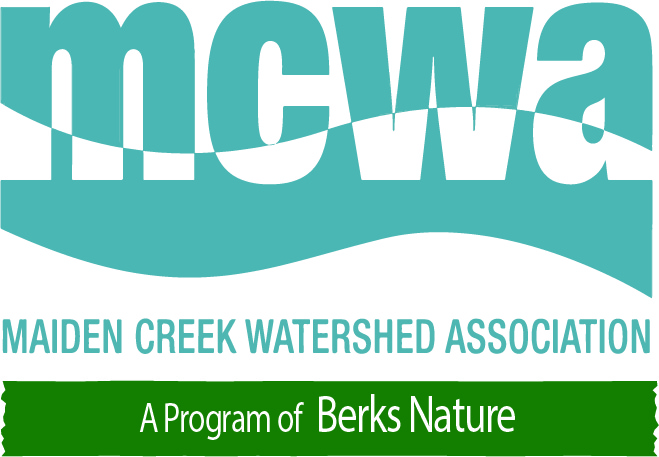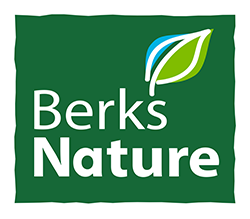Covering approximately 216 square miles in northeastern Berks and northwestern Lehigh counties, the Maiden Creek Watershed is the second largest tributary to the Schuylkill River. Berks County makes up 40% of the Schuylkill River Watershed, with the majority of the Maiden Creek Watershed’s 216 miles serving as the drinking water supply for families in the Greater Reading Area.
Maiden Creek Watershed Association
A program of Berks Nature, Maiden Creek Water Association is made up of volunteers, whose mission is to monitor and protect local streams and educate others on the issues and importance of watershed stewardship.
Interested in getting involved?
The Maiden Creek Watershed Association welcomes citizens who want to get involved, either by joining the association or volunteering as a trained stream monitor. Stream monitors are trained to measure important elements of stream health on a monthly basis. Specific sites throughout the watershed are targeted in coordination with local, county, and statewide organizations.
Stream monitoring determines the quality of the water, and helps to identify problem areas in the watershed.
As an MCWA monitor, you’ll be equipped with a monitoring kit to start your field work. Kits include test equipment, instructions, and necessary data sheets. A stream location will also be assigned for you to collect your data, unless you have a spot in mind.
The Maiden Creek Watershed Association welcomes anyone who has the time, commitment, and willingness to be a part of their watershed community. This is a great scientific project for students through retirees – one in which you’ll really make a difference.
Anyone can be a stream monitor!
Our monitors come from all walks of life: teachers, students, grandparents, farmers, property owners, and community members. A scientific background is not required!
Become familiar with the water quality and aquatic life in your local stream. Water quality is affected by watershed practices and land uses. Stream monitoring offers an opportunity for you to learn about the water quality of a local stream and how your actions can affect that stream.
Connect with the natural world: Individuals, families, and groups can make a deeper connection with their natural environment through the close study of one special stream.
Collect valuable data: Insufficient data represents a major hurdle to making informed decisions about local resources. Stream monitoring provides an important baseline.
Among the monitoring the MCWA performs:
- Basic stream observations: Monitor rainfall, debris, vegetation present, temperature, and other factors contributing to water quality.
- Dissolved Oxygen: The slow diffusion of oxygen into the water is affected by temperature and decomposition rates at the bottom of a water source and is crucial to the health of aquatic life.
- Turbidity: A measure of water clarity. Increased turbidity blocks sunlight to vegetation and threatens bottom dwelling organisms.
- pH: An essential indicator of aquatic health and a measurement of acidity on a scale of 0-14. Above or below the ideal pH of 6.5-8.2, fish and vegetation become threatened.
- Conductivity: Reveals the amount of dissolved materials in the water and the salinity, which increases during winter months due to road salt and can cause water quality issues.
- Nitrate/Phosphate: High nutrient levels, which often result from fertilizer runoff, can stimulate rapid algae growth, which can threaten water quality.
The MCWA also participates in stream clean-ups, buffer and restoration projects and other educational opportunities in the local community.
Macroinvertebrate Workshops
Throughout the year, MCWA holds macroinvertebrate workshops, where everyone can have fun collecting, identifying and learning about aquatic life!
Stream macroinvertebrate life: insects, worms, crustaceans, clams, etc. that are visible without the aid of a microscope are used to assess water quality based on their tolerance to various levels of dissolved oxygen. As such, data is collected and shared with our partner organizations, including Berks County Conservation District, Reading Area Water Authority, Schuylkill Action Network, Lehigh County Conservation District, and Delaware Riverkeeper Network.

Get Involved
For more information on becoming a stream monitor or other ways to get involved with the Maiden Creek Watershed Association, contact Berks Nature Education & Watershed Specialist Michael Griffith at 610-372-4992 ext. 108, or michael.griffith@berksnature.org.
